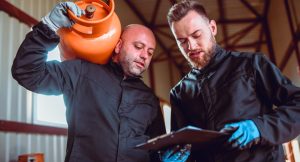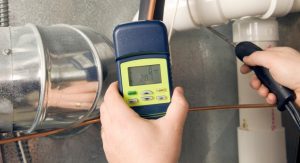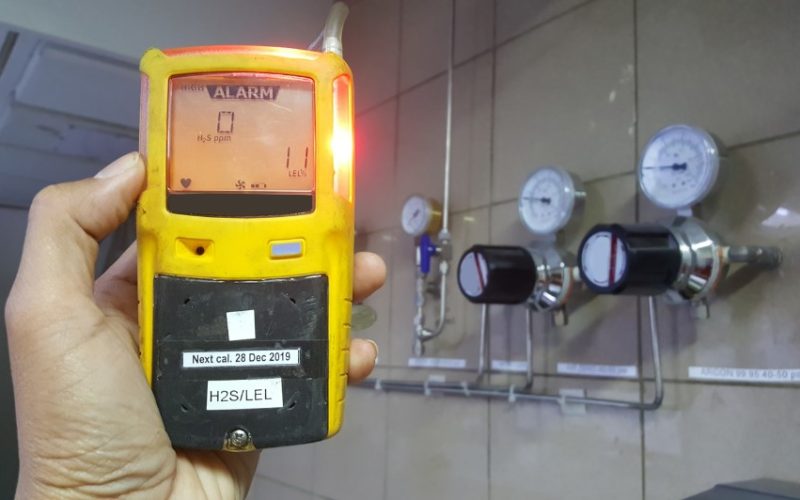Why Do You Need a Gas Safety Certificate?
When it comes to ensuring the safety of your home or rental property, a gas safety certificate is one of the most crucial documents you can have. It serves as a testament to the safe functioning of your gas appliances and is legally required for landlords in many regions. This blog explores the importance of a gas safety certificate, the legal implications, and the benefits it provides.
Legal Requirements
For Homeowners

While homeowners are not legally required to have a gas safety certificate, it is strongly recommended. Regular checks can prevent potential hazards and ensure that all gas appliances are functioning efficiently and safely.
For Landlords
In contrast, landlords are legally obligated to obtain a gas safety certificate. The Gas Safety (Installation and Use) Regulations 1998 require landlords to
- Arrange annual gas safety checks by a qualified Gas Safe registered engineer.
- Provide a copy of the gas safety certificate to tenants within 28 days of the check.
- Keep records of all gas safety checks for at least two years.
These regulations are in place to protect tenants and ensure that rental properties are safe to inhabit. Non-compliance can result in severe penalties, including fines and imprisonment.
Ensuring Safety
Preventing Carbon Monoxide Poisoning
Carbon monoxide is a colourless, odourless gas that can be fatal when inhaled. Faulty gas appliances are a common cause of carbon monoxide emissions. A gas safety certificate ensures that all appliances are checked for leaks and proper ventilation, significantly reducing the risk of carbon monoxide poisoning.
Avoiding Gas Leaks

Gas leaks can lead to explosions and fires, posing severe risks to occupants. Regular inspections help identify and repair potential issues before they become dangerous. A gas safety certificate confirms that your property has been inspected and deemed safe by a professional.
Financial Benefits
Avoiding Legal Penalties
Landlords who fail to comply with gas safety regulations face hefty fines and potential imprisonment. Ensuring your property has a valid gas safety certificate not only protects your tenants but also shields you from legal repercussions.
Reducing Repair Costs
Regular gas safety checks can detect minor concerns before they turn into large, costly repairs. This proactive approach can save you significant amounts of money in the long run by maintaining the efficiency and longevity of your gas appliances.
Peace of Mind
For Landlords
Knowing that your property is safe for tenants provides peace of mind. It also enhances your reputation as a responsible landlord, which can attract and retain tenants more effectively.
For Tenants
Tenants can live comfortably knowing that their home is free from gas-related hazards. This assurance is especially crucial for families with young children, elderly residents, or individuals with health concerns.
How to Obtain a Gas Safety Certificate?
Hire a Registered Engineer
Ensure that the engineer you hire is registered with Gas Safe, the official gas registration body in many countries. Only registered engineers are qualified to perform the necessary safety checks and issue a gas safety certificate.

When hiring an engineer, you can verify their credentials on the Gas Safe Register website. This step ensures that you are engaging a qualified professional who adheres to industry standards.
Schedule Annual Checks
Set reminders to schedule annual gas safety checks. Keeping a regular schedule ensures compliance with legal requirements and maintains the safety of your property.
Annual checks are crucial because gas appliances and installations can deteriorate over time. Regular inspections help catch issues early, preventing potential hazards.
Keep Records
Maintain thorough records of all gas safety checks and certificates. These documents are essential for legal compliance and can be useful for future reference or property transactions.
Keeping organized records ensures you can easily provide proof of compliance if needed. It also helps track the maintenance history of your gas appliances, which can be valuable information for future inspections or property sales.
Benefits Beyond Compliance
Enhancing Property Value
Properties with up-to-date gas safety certificates are more attractive to potential buyers and tenants. This certification indicates that the property has been well-maintained and is safe to inhabit, adding value and marketability.
Energy Efficiency
Gas safety checks often reveal opportunities for improving energy efficiency. For instance, an engineer might recommend servicing or upgrading an appliance to enhance its performance, leading to lower energy bills.
Common Misconceptions
“It’s Just a Formality”
Some landlords and homeowners might view gas safety checks as a mere formality. However, these checks are vital for detecting real and potentially dangerous issues. Treating them seriously ensures the safety of all occupants.
“New Appliances Don’t Need Checks”
Even new appliances should be checked regularly. Installation faults or defects can still pose risks. Regular inspections ensure everything is functioning correctly from the start.
FAQs
1. What should I do if my gas safety certificate has expired?
Schedule an inspection with a registered Gas Safe engineer immediately. Avoid using any gas appliances until they have been checked and deemed safe.
2. Can I perform my own gas safety check?
No, gas safety checks must be conducted by a qualified Gas Safe registered engineer to ensure accuracy and compliance with legal standards.
3. How long is a gas safety certificate valid?
A gas safety certificate is valid for one year from the date of the inspection.
4. What happens during a gas safety check?
During a gas safety check, the engineer will inspect all gas appliances, flues, and pipework to ensure they are working correctly and safely. They will also look for indicators of wear and tear or prospective difficulties.
5. What should I do if I smell gas?
If you smell gas, immediately turn off the gas supply at the mains, open windows and doors to ventilate the area, and contact a Gas Safe registered engineer. Avoid using any electrical switches or open fires.
Conclusion
A gas safety certificate is not just a legal requirement for landlords but a critical measure to ensure the safety and well-being of all property occupants. From preventing dangerous leaks and carbon monoxide poisoning to avoiding legal penalties and reducing repair costs, the benefits of obtaining a gas safety certificate are extensive. Prioritize regular gas safety checks to protect your property and its inhabitants, providing peace of mind for everyone involved.
By adhering to gas safety regulations and obtaining a gas safety certificate, you can ensure a safe living environment, avoid legal issues, and save money in the long run. Prioritize safety, and make gas safety checks a regular part of your property maintenance routine.









